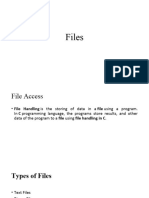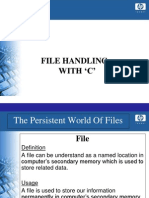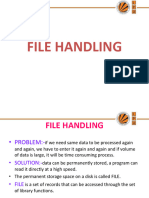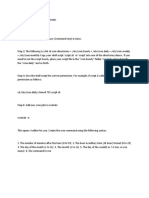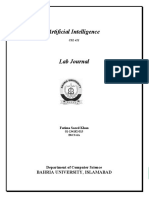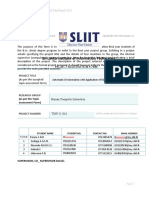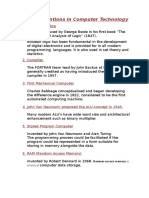0% found this document useful (0 votes)
23 views32 pagesModule V
The document discusses files in C and preprocessor directives. It defines a file as a place on the hard disk used to store huge amounts of data permanently. The purpose of files is to overcome the drawback of console I/O by preventing data loss during power failures. The steps to use files include declaring a FILE pointer data type, opening a file with fopen(), specifying the filename and mode, performing operations based on mode, and closing the file with fclose(). File operations include creating, opening, reading/writing, appending, and closing files. Text files contain character data while binary files contain binary numbers. File handling functions like fopen(), fclose(), fread(), fwrite() are used. Random access functions fseek
Uploaded by
omkargoud731Copyright
© © All Rights Reserved
We take content rights seriously. If you suspect this is your content, claim it here.
Available Formats
Download as PDF, TXT or read online on Scribd
0% found this document useful (0 votes)
23 views32 pagesModule V
The document discusses files in C and preprocessor directives. It defines a file as a place on the hard disk used to store huge amounts of data permanently. The purpose of files is to overcome the drawback of console I/O by preventing data loss during power failures. The steps to use files include declaring a FILE pointer data type, opening a file with fopen(), specifying the filename and mode, performing operations based on mode, and closing the file with fclose(). File operations include creating, opening, reading/writing, appending, and closing files. Text files contain character data while binary files contain binary numbers. File handling functions like fopen(), fclose(), fread(), fwrite() are used. Random access functions fseek
Uploaded by
omkargoud731Copyright
© © All Rights Reserved
We take content rights seriously. If you suspect this is your content, claim it here.
Available Formats
Download as PDF, TXT or read online on Scribd
/ 32





